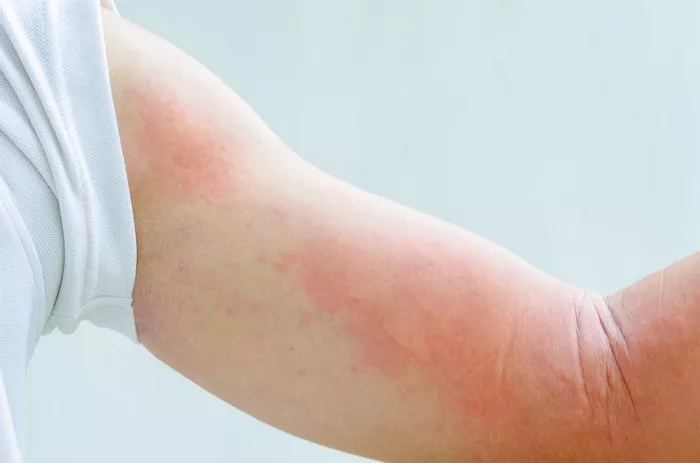Psoriasis is a chronic skin condition that causes red, scaly patches on the skin. These patches can be itchy and uncomfortable, affecting your quality of life. While there is no cure for psoriasis, various treatment options can help manage symptoms. One of the most effective ways to treat psoriasis is through topical creams. This article explores the best psoriasis treatment creams available today, their ingredients, and how to use them effectively.
Understanding Psoriasis
Before diving into treatment options, it’s essential to understand what psoriasis is. Psoriasis is an autoimmune disorder that accelerates the growth cycle of skin cells. Normally, skin cells grow and shed over a month. In psoriasis, this process can take just a few days, resulting in a buildup of cells on the skin’s surface.
Types of Psoriasis
There are several types of psoriasis, including:
Plaque Psoriasis: The most common type, characterized by raised, red patches covered with silvery-white scales.
Guttate Psoriasis: Often starts in childhood or young adulthood, appearing as small, drop-shaped lesions.
Inverse Psoriasis: Affects skin folds, such as under the breasts, in the groin, or under the armpits.
Pustular Psoriasis: Characterized by white pustules (blisters of noninfectious pus) surrounded by red skin.
Erythrodermic Psoriasis: A severe, life-threatening form that leads to widespread redness and shedding of the skin.
Causes and Triggers
Psoriasis can be triggered by several factors, including:
Genetics: Family history can increase the risk.
Infections: Such as strep throat or skin infections.
Stress: High-stress levels can exacerbate symptoms.
Skin Injuries: Cuts, scrapes, or sunburn can trigger flares.
Weather: Cold, dry weather often worsens symptoms.
Importance of Treatment
Managing psoriasis effectively is crucial for reducing flare-ups and improving skin appearance. Treatment can also relieve itching and discomfort. Creams are a primary treatment option, especially for mild to moderate psoriasis. They can deliver medication directly to the affected area, providing quick relief.
Types of Psoriasis Treatment Creams
Psoriasis treatment creams come in various forms, each with unique benefits. Here are the main types:
1. Topical Corticosteroids
Overview
Corticosteroids are anti-inflammatory medications that reduce redness, itching, and swelling. They are often the first line of treatment for psoriasis.
Popular Options
- Hydrocortisone: A mild corticosteroid suitable for sensitive areas.
- Clobetasol Propionate: A potent option for severe psoriasis.
How to Use
Apply a thin layer to the affected areas once or twice daily, as directed by your healthcare provider. Gradually increase the amount as needed but avoid prolonged use to prevent skin thinning.
2. Vitamin D Analogs
Overview
Vitamin D analogs help slow skin cell growth and are effective in treating plaque psoriasis.
Popular Options
- Calcipotriene: This cream can be used alone or in combination with topical corticosteroids.
- Calcitriol: Another effective vitamin D derivative for managing symptoms.
How to Use
Apply to affected areas twice daily. Use in conjunction with sunscreen, as vitamin D can increase skin sensitivity to the sun.
3. Retinoids
Overview
Retinoids are derived from vitamin A and help normalize skin cell growth. They are particularly effective for plaque psoriasis.
Popular Options
- Tazarotene: A topical retinoid that reduces inflammation and scaling.
How to Use
Apply a thin layer to affected skin once daily. Be aware that retinoids may cause skin irritation, so start with a lower frequency and gradually increase as tolerated.
4. Calcineurin Inhibitors
Overview
Calcineurin inhibitors work by suppressing the immune response, which helps reduce inflammation and scaling.
Popular Options
- Tacrolimus: Suitable for sensitive areas, such as the face and skin folds.
- Pimecrolimus: Another option for sensitive skin.
How to Use
Apply twice daily to affected areas. These are often prescribed for long-term use in sensitive areas to avoid corticosteroid side effects.
5. Coal Tar
Overview: Coal tar is a traditional treatment that reduces scaling, itching, and inflammation. It is particularly useful for plaque psoriasis.
Popular Options
- Over-the-counter Coal Tar Shampoo: Helps treat scalp psoriasis.
- Coal Tar Ointment: For other affected skin areas.
How to Use: Apply to affected areas once or twice daily. Be cautious, as coal tar can stain clothes and bedding.
6. Salicylic Acid
Overview:
Salicylic acid helps to remove scales and reduce redness. It is often used in combination with other treatments.
Popular Options
Salicylic Acid Creams and Ointments: Available over the counter.
How to Use
Apply to affected areas once or twice daily. Rinse off after a few hours if using a higher concentration to minimize irritation.
Choosing the Right Cream
When selecting a psoriasis treatment cream, consider the following factors:
Severity of Psoriasis
Mild cases may respond well to over-the-counter options, while moderate to severe cases may require prescription-strength treatments.
Location of Psoriasis
Sensitive areas, such as the face or skin folds, may require gentler treatments like calcineurin inhibitors.
Skin Sensitivity
If you have sensitive skin, start with lower-potency corticosteroids or vitamin D analogs to minimize irritation.
Personal Preference
Consider your lifestyle and how easy the treatment is to incorporate into your routine. Creams may take longer to absorb than ointments, for example.
Tips for Using Psoriasis Creams
To maximize the effectiveness of your psoriasis treatment cream, follow these tips:
Clean the Affected Area: Wash and gently pat the skin dry before applying the cream.
Apply the Right Amount: Use a thin layer; more product doesn’t equal better results.
Follow the Instructions: Adhere to your healthcare provider’s instructions for frequency and duration.
Avoid Trigger Factors: Identify and minimize exposure to known triggers, such as stress and certain foods.
Moisturize: Use a fragrance-free moisturizer regularly to keep skin hydrated and reduce scaling.
Be Patient: It may take weeks to see improvement, so stick with the treatment.
When to Seek Medical Help
If over-the-counter creams do not provide relief, consult a healthcare professional. They may recommend stronger topical treatments or systemic medications for more severe cases.
Combination Therapy
Sometimes, combining different types of treatments yields the best results. For example, using a topical corticosteroid alongside a vitamin D analog can enhance effectiveness.
Alternative Treatments
In addition to creams, consider other treatment options such as phototherapy, systemic medications, or biologics, which target specific parts of the immune system.
Conclusion
Finding the best psoriasis treatment cream can significantly improve your skin’s appearance and overall comfort. While many options are available, the effectiveness of each cream may vary from person to person. Always consult with a healthcare provider to determine the best treatment plan for your individual needs.
Managing psoriasis requires patience and persistence. With the right treatment and lifestyle adjustments, you can take control of your symptoms and enjoy a better quality of life. Whether you opt for topical corticosteroids, vitamin D analogs, or other treatments, consistency is key to managing this chronic condition effectively.
Related topics:


























